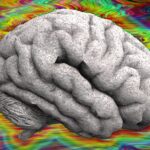The nod to MDMA and psilocybin as treatments for depression and PTSD is a world first.
The maximum size of paracetamol packs available off the shelf in Australian pharmacies will be slashed from 100 to 32 tablets or capsules as part of an interim decision announced by the TGA.
The decision will also see pack sizes available in supermarkets and convenience stores shrink from 20 to 16 tablets or capsules. Limits will also be placed on the number of packs people can buy in one transaction.
The regulator’s controversial move comes alongside a landmark decision to approve MDMA and psilocybin for PTSD and treatment-resistant depression, respectively.
“This decision by the TGA makes Australia the first country in the world to officially recognise MDMA and psilocybin as medicines,” psychologist and addiction expert Dr Stephen Bright, from Edith Cowan University, said in a statement.
Meanwhile, the proposed paracetamol crackdown would mean people wanting pack sizes of more than 32 capsules or tablets (up to 100 tablets) will have to request them from the pharmacist.
In announcing the interim decision, which will be open for public comment for a month, the TGA urged consumers not to stockpile paracetamol.
The move follows the release late last year of an independent expert report commissioned by the TGA to examine Australia’s incidence of serious injury and death from intentional paracetamol overdose.
The review was led by Professors Nicholas Buckley (University of Sydney and NSW Poisons Information Centre), Alison Calear (Centre for Mental Health Research, Australian National University) and Helen Christensen (Black Dog Institute, University of NSW).
About 225 people are hospitalised and 50 die from paracetamol overdose in Australia each year, with rates of intentional overdose highest among adolescents and young adults, the TGA reported.
Its interim decision proposes to amend the Poisons Standard, which provides regulatory controls over medicine availability, to:
- Reduce the maximum size of packs available for general sale (e.g. supermarkets and convenience stores) from 20 to 16 tablets or capsules.
- Reduce the maximum size of packs available in pharmacies without supervision of a pharmacist from 100 to 32 tablets or capsules.
- Make other pack sizes of up to 100 tablets or capsules only available under the supervision of a pharmacist.
- Ban the use of bottles for paracetamol products, meaning only blister packs will be available for sale.
According to a TGA statement released on 3 February, the decision took into account responses to the initial public consultation on the report in September-October last year, and also advice from the Advisory Committee on Medicines Scheduling.
“It intends to strike a balance between minimising the incidence and harm from intentional self-poisoning and access to paracetamol for the treatment of acute and chronic pain,” the statement read.
“To further minimise the harm from paracetamol overdose, the TGA is encouraging retailers such as supermarkets to restrict sales to a single pack at a time. The TGA is also encouraging consumers to not stockpile paracetamol in the home and to appropriately store paracetamol and other medicines.”
The decision is open to further public consultation until 3 March, and comments can be made on the TGA Consultation Hub.
Painaustralia CEO Giulia Jones welcomed the TGA’s decision not to recommend the upscheduling of paracetamol, and not to restrict purchases based on age – which were originally recommended in the report.
“Painaustralia’s concerns about the detrimental impacts limiting paracetamol access to people who live with chronic pain and rely on paracetamol to self-manage their day to day lives have been taken seriously by the delegate,” she said.
“If the original proposals had been accepted, people in chronic pain would have been significantly detrimentally affected, having to pay more and go to the doctor more often.
“Life would have been much harder for those on low incomes, in regional and rural areas who work to self-manage their pain without the same access that people in the cities and with higher incomes can afford.”
She said reducing the size of packs available in supermarkets would still “affect low-income earners and those struggling the most with day-to-day life as they will need to return time and again to the supermarket to maintain supply if they do not have easy access to a pharmacy. However, on balance this is a sensible outcome for consumers,” she said.
Psychedelics greenlit for mental illness
From 1 July, psychiatrists will be able to prescribe MDMA for post-traumatic stress disorder (PTSD) and psilocybin for treatment-resistant depression.
These two substances continue to be listed as Schedule 9 drugs, but the TGA has added them to the Schedule 8 listing only for their use as treatments for treatment-resistant depression and PTSD.
“The decision acknowledges the current lack of options for patients with specific treatment-resistant mental illnesses,” the TGA said in a statement.
“It means that psilocybin and MDMA can be used therapeutically in a controlled medical setting.”
Dr Bright said that recognising illegal drugs like MDMA and psilocybin had medical uses was an important step in drug policy reform. But he called for the “extensive training” of providers to ensure patients were not harmed.
“It will be important that the TGA provides a clear expectation regarding the minimum training standards required for psychiatrists who the TGA approves to prescribe these drugs.
“Further, given people are already accessing the treatments illegally in Australia, this announcement has the potential to create further awareness among the public resulting in more people accessing these treatments illegally through desperation. It will be important that resources are provided by the government to minimise these unintended effects of the legislation change.”
At present, there are no TGA-approved products containing psilocybin or MDMA on the Australian Register of Therapeutic Goods.
But the regulator said that authorised psychiatrists would be able to “access and legally supply specified ‘unapproved’ therapeutic products containing psilocybin or MDMA to patients under their care for these specific uses if all other clinically appropriate treatment options on the ARTG have been considered”.
Provision may be largely limited to patients undergoing treatment in a research context, as the TGA has stipulated that psychiatrists will only be allowed to prescribe the drugs if they have approval an NHMRC-registered ethics committee.
“Psilocybin and MDMA are relatively safe when used in a medically controlled setting under the supervision of appropriately trained healthcare professionals and in the dosages that have been studied in clinical trials,” the TGA said.
But the regulator did note that controls were needed to protect patients, who would be vulnerable during psychedelic-assisted psychotherapy.
The decision has received mixed reactions from the medical community.
“I have a significant degree of caution about this decision because these treatments are not well established at all for a sufficient level of broad-scale implementation,” Professor Susan Rossell, cognitive neuropsychologist at Swinburne’s Centre for Mental Health, said in a statement.
Professor Rossell is also a researcher on Australia’s largest research trial examining psilocybin for treatment-resistant depression. She said substantial further research needed to be done to confirm efficacy and determine optimal formulations.
“We’ve got no data on long-term outcomes at all, so that worries me a lot, which is one of the reasons why I’m doing my very large study,” she said.
Professor Richard Bryant, psychologist at the University of NSW and director of the UNSW Traumatic Stress Clinic, said there was early evidence backing MDMA in treating PTSD, “but there is much we do not know”.
“We currently have strong evidence-based treatments for PTSD, and to date, we do not know how MDMA compares relative to these proven treatments which are much cheaper and simpler to administer,” said Professor Bryant.
“The science is at a point where we can say it is too early to be prescribing MDMA for PTSD patients. Instead, we should be investing in research to understand how MDMA can be used in relation to proven treatments.”
Dr Paul Liknaitzky, head of clinical psychedelic research at Monash University, acknowledged the need for training to ensure safety and efficacy, and said it would hinge on “a unique set of professional competencies and considerations that are in scarce supply within mental healthcare”.
“I lead one of only a few sites in Australia that is already delivering psychedelic-assisted therapies to clinical patients – we have witnessed up-close the potential of our treatment to change people’s lives for the better,” he said.
Associate Professor David Caldicott, clinical senior lecturer in emergency medicine at the Australian National University, welcomed the decision.
“Perhaps most excitingly, many of the treatments that are emerging with these previously banned products require only a brief exposure to facilitate therapy, and not the life-long prescription of drugs that do little more than dull the edge of psychological trauma,” he said in a statement.
“The safe re-medicalisation of certain historically illicit drugs is a very welcome step away from what has been decades of demonisation.
“In addition to a clear and evolving therapeutic benefit, it also offers the chance to catch up on the decades of lost opportunity in delving into the inner workings of the human mind, abandoned for so long as part of an ill-conceived, ideological war on drugs.”









